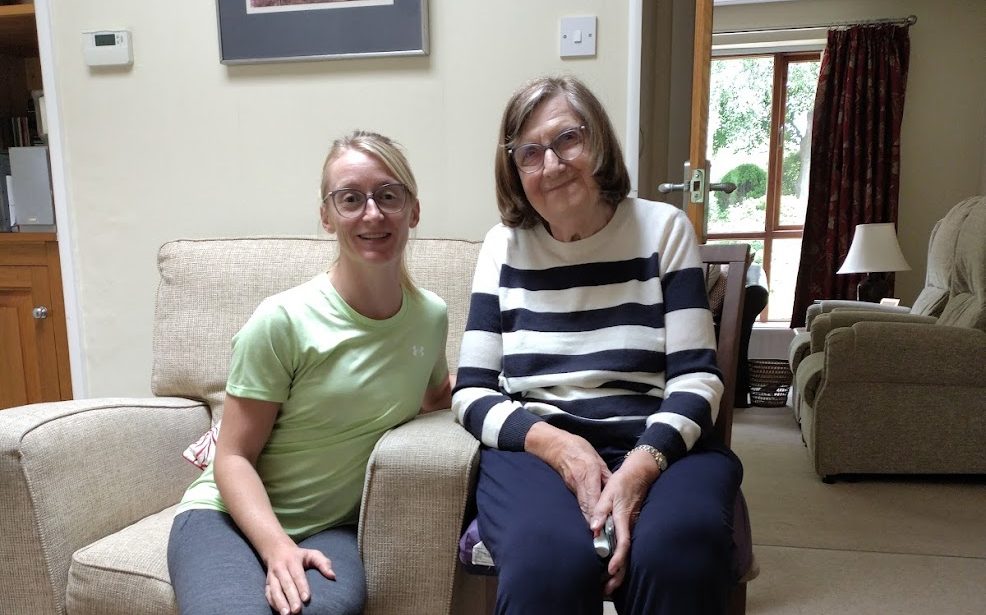If you’re an autistic adult considering your living options, you might be exploring ways to maintain your independence and live your life whilst having the right support in place. Live-in support offers a personalised approach that allows you to live in your own home with dedicated one-to-one assistance tailored to your needs and preferences.
What live-in support involves
Live-in support means having a trained support worker move into your home to provide assistance throughout the day and night, based on what you need and want. This might include practical help with tasks like meal preparation, household management, or personal routines, always at your direction and according to your preferences.
Having the same support worker, rather than different people coming and going, provides consistency that many autistic adults find valuable. This steady presence means you can build a working relationship with someone who understands your routines, communication style, and what works best for you.
Your daily life with live-in support
Every arrangement is unique as it’s built around your individual needs, goals, and lifestyle. Depending on your circumstances, you might want support with:
- – Transport to and from employment and/or university
- – Personal needs and routines such as meal preparation, done your way, at your pace
- – Household tasks like cleaning, laundry, and shopping, with you directing how and when these happen
- – Community activities that interest you, whether that’s going to the gym, joining social groups, a night out, pursuing hobbies, or volunteering
- – Attending appointments with healthcare professionals or managing correspondence
Your support worker enables you to live the life you choose. They work alongside you, providing assistance where you need it whilst respecting your autonomy and decision-making.
Benefits of staying in your own home
Living in your own space means you can maintain the routines and environment that work for you. Your support worker adapts to your preferences rather than expecting you to fit into a predetermined structure. This flexibility extends to everything from meal times and daily schedules to how you organise your space and manage your belongings.
Many autistic adults find that familiar surroundings reduce stress and sensory challenges. With live-in support, you can continue accessing your local community, maintain existing friendships and professional relationships, and build new connections at your own pace.
Is live-in support right for you?
Live-in support works well for many people, though the right choice depends on your individual circumstances and preferences. Some people prefer the social opportunities of residential settings, whilst others value the familiarity and control of staying in their own home. Factors like your support needs, budget, location, and personal goals will all influence what works best for you.
If you’re interested in exploring live-in support, speaking with a local support consultant [link] can help you understand how it might work for your specific situation and what options are available.
If you’d like to learn more about live-in support for autistic adults, call 0800 086 8686 or email care@promedica24.co.uk. Our team will be happy to discuss your options and answer any questions you may have.
More from our blog

Managing Sensory Needs at Home: Working with Your Live-in Support Worker
Your home should be a place where you can relax, unwind and feel comfortable. When you have live-in support, establishing clear communication about your sensory needs helps create an environment that truly works for you. Understanding your sensory preferences Autistic people can be much more or less sensitive to sensory experiences than non-autistic people, according […]
Read More
Live-In Support vs Supported Living for Autistic Adults: What’s the Difference?
If you’re an autistic adult exploring long-term support options, two of the most common arrangements are live-in support and supported living. Both can provide structure and assistance, but they work in very different ways. Understanding these differences can help you decide which might be the better fit for your lifestyle and preferences. Live-in support Live-in […]
Read More
Referral Partner Spotlight: Activation Health
In this Spotlight, we share the work of Emma from Activation Health, a Specialist Public Health Nurse and Health & Movement Coach. One part of Emma’s work is supporting clients to improve mobility, confidence and independence, often in partnership with Promedica24 live-in carers. She discusses why early intervention is important, how to recognise when someone […]
Read More

